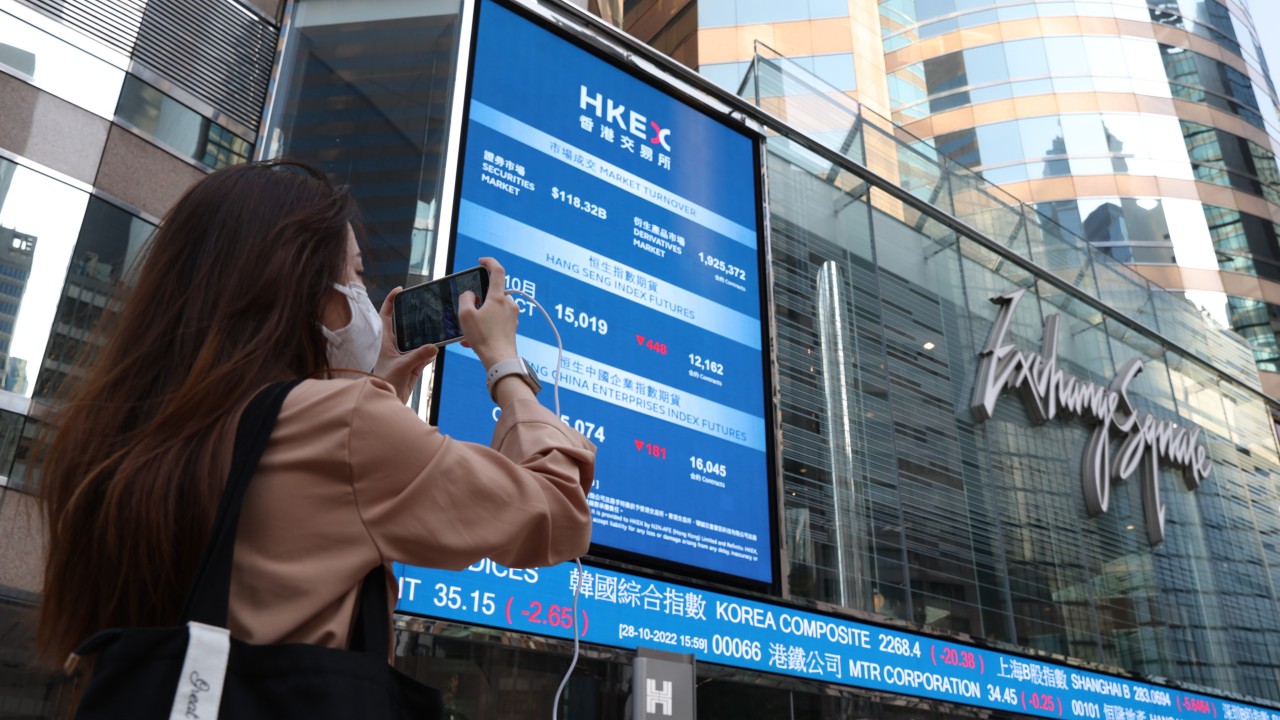
The Hang Seng Index tumbled 1.7 per cent to 16,360.98 at 11.28am local time, the lowest level since November 10 last year. The Tech Index dropped 2 per cent while the Shanghai Composite Index retreated 0.7 per cent.
WuXi Biologics sank 11 per cent to HK$29.55, adding to a 24 per cent plunge on Monday that triggered a trading halt and erased US$44 billion (US$6.2 billion) in market capitalisation. Analysts at Nomura, Daiwa, BoCom, CLSA and Citigroup cut their earnings forecasts or downgraded their recommendations to reflect the souring prospects.
Elsewhere, bourse operator Hong Kong Exchanges and Clearing slid 5.7 per cent to HK$253 and Tencent lost 2.7 per cent to HK$308.40 while Alibaba Group slipped 1 per cent to HK$70.10. Zijin Mining lost 2.7 per cent to HK$12.26 after gold prices fell from a record.
“Sentiment has worsened after China’s economy has shown signs of a weak recovery and some of the big companies tumbled after their recent quarterly results,” said Shen Fanchao, an analyst at Zheshang International. “We remain cautious about Hong Kong stocks in the near term.”
UBS, Lazard gear up for China bull market as green shoots emerge in economy
UBS, Lazard gear up for China bull market as green shoots emerge in economy
The Hang Seng Index has fallen 17 per cent this year, the worst among major global benchmarks, contributing to a US$551 billion marketwide sell-off. Losses flared before several reports this week on China’s economic pulse. Exports probably dropped for a seventh straight month in November, while consumer and producer prices likely contracted again, according to consensus among economists tracked by Bloomberg.
Five companies debuted today with mixed results, including three in Hong Kong. Shenghui Cleanness Group added 7.8 per cent to HK$0.345, while Sino-Synergy Hydrogen Energy tumbled 17 per cent to HK$16.28 and loan provider K Cash lost 1.1 per cent to HK$1.78.
Shanghai Jinjiang Shipping jumped 93 per cent to 45.37 yuan in Shanghai while Beijing Groundsun Technology rallied 57 per cent to 17.64 yuan in Beijing.
Other major Asian markets fell, as traders dialled back excessive bets that the Federal Reserve is done with its rate hike this year. Japan’s Nikkei 225 slipped 1.4 per cent, while South Korea’s Kospi retreated 0.4 per cent and Australia’s S&P/ASX 200 lost 1.1 per cent.

